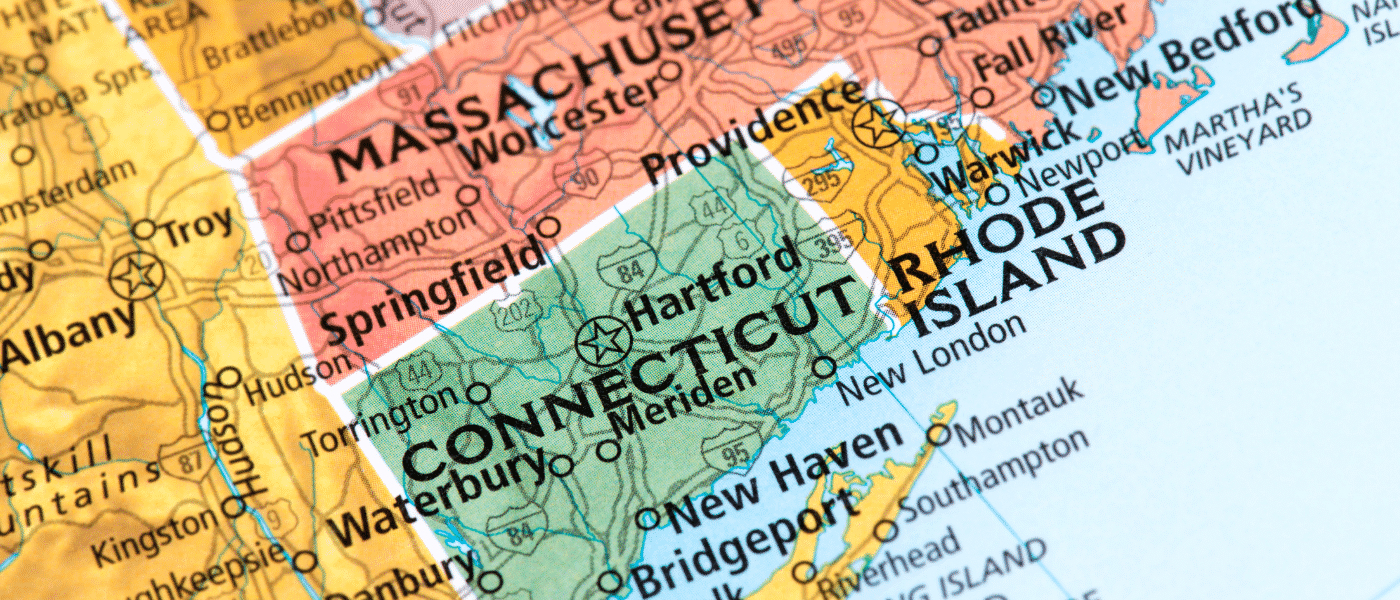Connecticut Reaches Online Gambling Agreement With Mohegan Tribe

Yesterday, Governor Ned Lamont and Mohegan Tribe Chairman James Gessner Jr. announced an agreement to legalize online gambling and sports betting in Connecticut.
The agreement brings the state one step closer to clearing one of the biggest hurdles to legalizing online gambling in Connecticut, which is getting the state’s primary gambling stakeholders to reach a consensus.
In a statement, Governor Lamont praised the agreement:
This agreement represents months of hard work and dedication to getting a deal that’s best for the residents of Connecticut and moves our state forward when it comes to the future of gaming.
We are incredibly fortunate to have such a devoted partner in these efforts like the Mohegan Tribe, as they have been open to negotiation, honest discussion, and a positive path forward that is beneficial for both their tribe and the State of Connecticut.
As Steve Ruddock noted, Connecticut has been eyeing sports betting for some time, but finding a compromise that satisfies the state’s gambling interests has been no easy task. Between the state’s powerful gambling tribes (the Mohegans and Pequots), off-track betting operators, and the state lottery, lawmakers have a tough needle to thread.
Connecticut’s Deal with the Mohegan Tribe
Connecticut’s agreement with the Mohegan Tribe addresses a broad range of expanded gambling considerations designed to please the state’s primary stakeholders.
The most noteworthy points from the agreement include:
- Authorize online gambling and sports betting
- Tax online gambling at 20%; sports betting at 13.75%
- Connecticut Lottery may operate 15 retail sportsbooks and one online betting platform
- Connecticut’s two tribal gaming operators may operate retail sportsbooks and statewide mobile betting
- The CT Lottery may sub-license some of its retail sportsbook locations to the state’s approved off-track betting operator (Sportech)
Mashantucket Pequot Tribe Not on Board, Yet
The Mashantucket Pequot Tribe, which operates Foxwoods Casino, has not reached an agreement with Connecticut for sports betting and online gambling.
According to NBC Connecticut, Pequot Chairman Rodney Butler said the Pequot Tribe is “literally on the one-inch line” to reaching an agreement with the state. “I’m certain we’ll get there soon,” he said.
If Connecticut can bring the Pequot Tribe on board, the state will have all the key pieces in place it needs to legalize statewide sports betting and online gambling.
However, some friction points remain. Late Tuesday evening, Butler lambasted Governor Lamont’s announcement of an agreement with just one of the state’s two gaming tribes signed on:
“We have participated in these discussions in good faith and consider today’s events extremely disrespectful in terms of process and substance,” he said in a statement.
Offense aside, the Pequot Tribe still appears close to reaching an agreement with the state. Butler further explained that the tribe has just one “point of contention that is easily resolved if some sense of mutual respect is afforded for the specific needs of our tribal community.”
Butler did not elaborate on what that remaining point of contention is.
Sportech Threatens to Sue
Connecticut’s exclusive parimutuel horse racing betting operator, Sportech plc, opposes the agreement.
In a statement issued Tuesday, Sportech threatened to pursue legal action in response to the agreement:
Regretfully, the governor’s announcement this after that principally excludes Sportech from expanded gaming leaves us with little option but to pursue legal recourse on behalf of our 400 Connecticut employees.
Lamont’s agreement with the Mohegan Tribe gives Sportech a small piece of the action by granting the state lottery the right to issue sub-licenses to the company to operate some retail sportsbooks, but Sportech has a different vision for expanding gaming in Connecticut.
According to Sportech’s Sports Betting for Connecticut website, the company believes each of the state’s key gambling stakeholders should be permitted to conduct retail and online sports betting. Under the Sportech model, the state should allow the CT Lottery, Sportech, the Mohegan Tribe, and the Pequot Tribe to offer in-person and mobile betting in Connecticut.
What Happens Next
Once Connecticut reaches an agreement that satisfies the state’s key gambling stakeholders, lawmakers can get to work drafting legislation to implement the agreements.
Governor Lamont and the legislature have already filed sports betting legislation this year, but the biggest roadblock to getting something past the finish line was getting the state’s primary operators all on the same page.
If all goes well with current negotiations, all that will remain is for lawmakers and the governor to agree on legislation that satisfies all interested parties and pass it into law.







